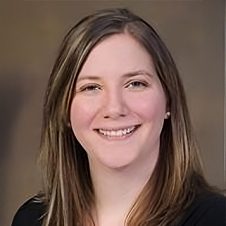Cancer Rep (Hoboken). 2024 Sep;7(9):e2119. doi: 10.1002/cnr2.2119.
ABSTRACT
BACKGROUND: Cancer predisposition syndromes (CPS) impact about 10% of patients with pediatric cancer. Genetic testing (CPS-GT) has multiple benefits, but few studies have described parent and child knowledge and attitudes regarding CPS-GT decision-making. This study examined parent and patient CPS-GT decision-making knowledge and attitudes.
PROCEDURE: English- or Spanish-speaking parents of children with pediatric cancer and patients with pediatric cancer ages 15-18 within 12 months of diagnosis or relapse were eligible to participate. Seventy-five parents and 19 parent-patient dyads (N = 94 parents, 77.7% female, 43.6% Latino/a/Hispanic; 19 patients, 31.6% female) completed surveys measuring CPS-GT-related beliefs. Independent samples t-tests compared parent responses across sociodemographic characteristics and parent-patient responses within dyads.
RESULTS: Spanish-speaking parents were significantly more likely than English-speaking parents to believe that CPS-GT not being helpful (p < .001) and possibly causing personal distress (p = .002) were important considerations for deciding whether to obtain CPS-GT. Parents with less than four-year university education, income less than $75,000, or Medicaid (vs. private insurance) were significantly more likely to endorse that CPS-GT not being helpful was an important consideration for deciding whether to obtain CPS-GT (p < .001). Parents felt more strongly than patients that they understood what CPS-GT was (p = .01) and that parents should decide whether patients under 18 should receive CPS-GT (p = .002).
CONCLUSIONS: Spanish-speaking parents and parents with lower socioeconomic statuses were more strongly influenced by the potential disadvantages of CPS-GT in CPS-GT decision-making. Parents felt more strongly than patients that parents should make CPS-GT decisions. Future studies should investigate mechanisms behind these differences and how to best support CPS-GT knowledge and decision-making.
PMID:39233650 | DOI:10.1002/cnr2.2119



